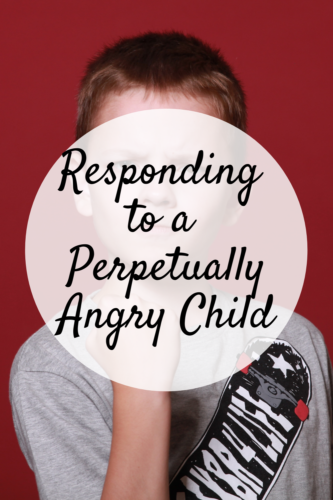
Although many of us associate extreme anger issues with adults, it’s entirely possible for children to be afflicted by them, as well. Additionally, if these problems aren’t dealt with in a timely manner, they’re liable to affect a child for their entire life. So, if you have a child who’s frequently angry and/or expresses their anger through intense yelling or destructive behavior, it’s important that you make treating this issue one of your top priorities. Parents who are looking for ways to constructively respond to perpetually angry children would be wise to consider the following tips.
Maintain a Sense of Calm
When faced with someone else’s anger, many of us respond by expressing anger of our own. Even if we know this isn’t the appropriate response, getting angry can feel mildly satisfying in the moment. However, maintaining a sense of calm is particularly important when dealing with an angry child. The angrier you get in response to their anger, the more likely they are to take their outbursts to the next level. Furthermore, seeing you get angry will reinforce the notion that rage is an acceptable response to assorted problems and disappointments.
For these reasons, it is strongly recommended that you keep your cool when faced with angry outbursts from children. Getting angry may make you feel good in the short term, but the long-term damage it stands to do to your child is not worth the momentary satisfaction. Conversely, if your child sees you keep your cool throughout the duration of their outburst, they’re more likely to realize that rage fits aren’t the best way to express one’s feelings.
Seek Outside Assistance
If you require assistance in managing your child’s anger, consider reaching out to knowledgeable mental health professionals. To start with, you’ll need to get in touch with your family physician and apprise them of the problem. Your physician will then be able to refer you to the appropriate therapist, counselor or child psychologist. Cincinnati-based parents in need of a new family physician are encouraged to type “general family medical practice Anderson” into their preferred search engine.
Don’t Invalidate Your Child’s Feelings
There’s certainly no shame in feeling anger. Anger is, after all, a perfectly normal human emotion. How one responds to anger is what ultimately makes all the difference. So, if your child has a tendency to become violent or destructive whenever they’re feeling angry, you’ll need to impart this lesson to them. Not only should you punish them for engaging in violent behavior, you should make it clear that they’re not being punished for being angry, but rather the manner in which they’ve chosen to express their anger.
In the interest of preventing future outbursts, introduce your child to effective cooldown activities. Playing with a favorite toy, having a nice snack or engaging in physical play are all examples of activities that can quell a child’s anger in an expedient fashion. Furthermore, when you see your child making an active effort to cool down, don’t hesitate to let them know what a good job they’re doing. The more positive reinforcement they receive, the more likely they are to embrace constructive anger management techniques long-term.
Refuse to Reward Inappropriate Behavior
Oftentimes, the goal of a temper tantrum or angry outburst is getting something the child has been denied. Needless to say, simply giving them what they want and bringing the tantrum to an end can be tempting. Although doing so can bring temporary relief, it will facilitate future tantrums and lead your child to believe that outbursts are an effective means for getting what they want. So, no matter how much you want a tantrum to end in the moment, giving in to a rage-fueled outburst will only create more problems for both you and your child.
In many cases, the root cause(s) of a child’s anger issues are readily apparent. Other times, the issues at the heart of these problems require professional help to identify. Whatever the reason for your child’s persistent anger, it’s important that you be mindful of how you respond to it, as dealing with anger problems incorrectly stands to make said problems even worse. So, the next time you find yourself at the mercy of a child’s intense anger, remember the measures discussed above.





